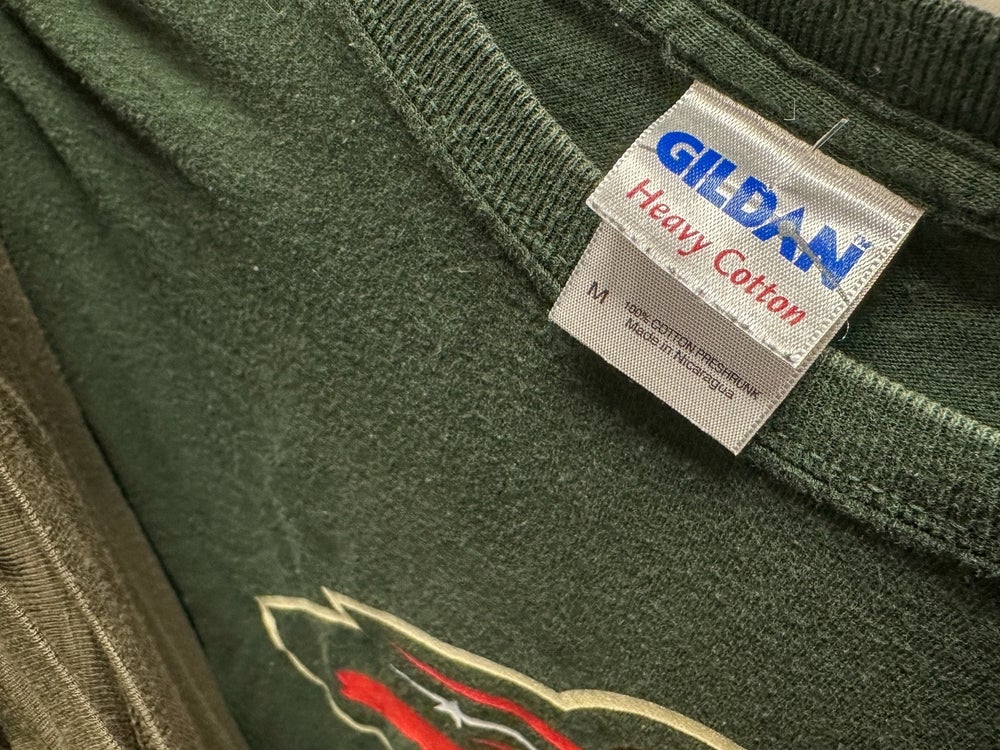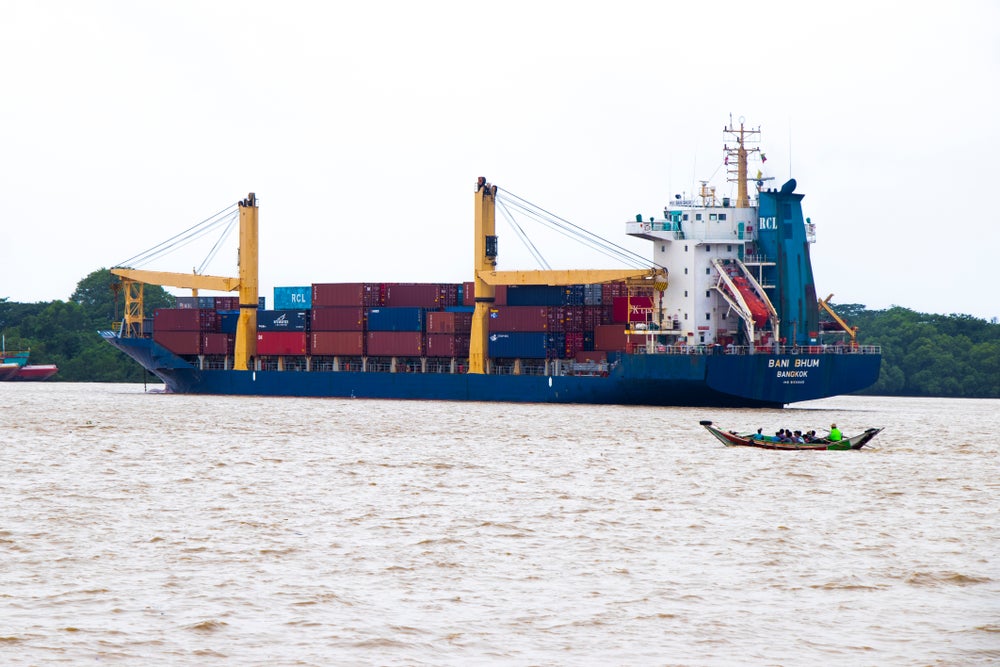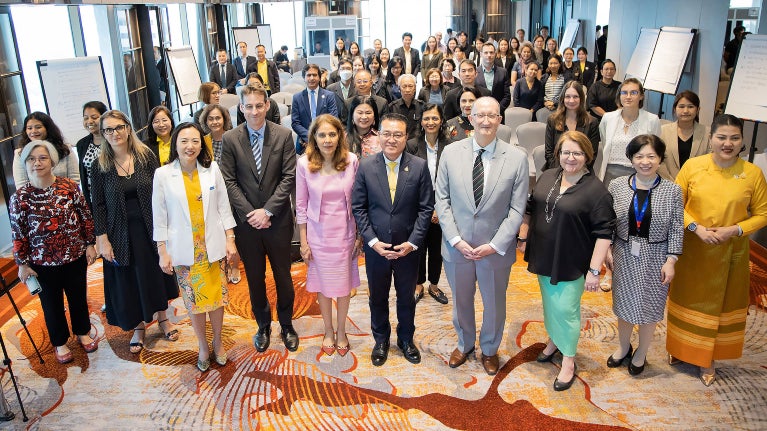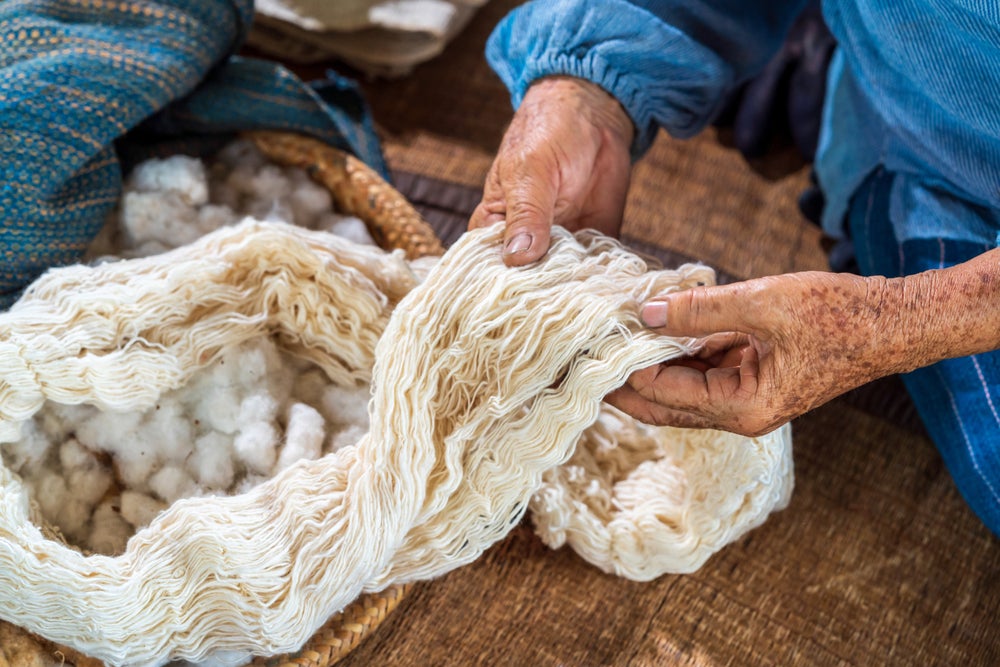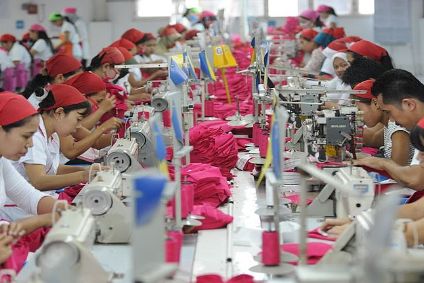
Employers and workers in Indonesia’s garment and footwear industries have joined forces to tackle the impact of Covid-19 by ramping up safety and health, worker welfare and business sustainability.
A commitment signed earlier this month by Indonesian employers’ associations and trade unions representing the export-oriented garment and footwear industries promotes compliance with occupational safety and health and Covid-19 related guidelines, and upholds social dialogues to overcome common employment issues.
The move is a follow-up to the Call to Action in the Global Garment Industry launched earlier this year between the International Organization of Employers (IOE), the International Trade Union Confederation (ITUC), and the International Labour Organization (ILO). Its aim is to support garment factories and workers through the Covid-19 pandemic with more sustainable systems of social protection.
The Indonesian pact will see steps to protect workers and employers from contracting Covid-19, reduce the escalation of the unemployment rate and the loss of income of workers.
Both employers and unions pledge to implement ILO core labour standards, comply with occupational safety and health (OSH) regulations and engage with government and brands to maintain jobs and livelihoods of workers – both during and after the pandemic.
See Also:
“We want to show our international buyers that we are dealing with this issue together and we are committed to follow the new protocols for the benefits of both workers and employers,” says Sinta Widjaja Kamdani, deputy of the Indonesian Employers’ Association (Apindo), which is one of the signatories.
How well do you really know your competitors?
Access the most comprehensive Company Profiles on the market, powered by GlobalData. Save hours of research. Gain competitive edge.

Thank you!
Your download email will arrive shortly
Not ready to buy yet? Download a free sample
We are confident about the unique quality of our Company Profiles. However, we want you to make the most beneficial decision for your business, so we offer a free sample that you can download by submitting the below form
By GlobalDataAlso signing the commitment are the Indonesian Textile Association (API) and the Indonesian Footwear Association (Aprisindo) representing employers. From the worker’s side, it has been signed by the Federations of Textile, Clothing and Leather Unions of the Confederation of All Indonesian Workers Union (FSP-TSK KSPSI) and of Confederation of Indonesian Trade Union (FSP-TSK KSPI) as well as the Federation of Garment, Handicraft, Textile and Industrial Centers of the Indonesian Labour Union Confederation (FSB-Garteks KSBSI) and Confederation of National Workers Union (KSPN).
Both the Apindo deputy, and Elly Silaban, president of KSBSI, emphasise the importance of the Indonesian export-oriented garment and footwear industries as one key pillar of the country’s economic fabric. “This is our togetherness and our joint responses to overcome the challenges that we are jointly facing,” Silaban explains.
In Indonesia, the joint commitment has been facilitated by the Better Work Indonesia (BWI) programme, a joint programme of the ILO and the International Finance Corporation (IFC). The programme aims to improve working conditions and boost competitiveness of the Indonesian garment and footwear industries.
Indonesia’s clothing industry is another sourcing hub that has been struggling during the Covid-19 pandemic, with overseas buyers cancelling orders and the domestic market in the doldrums.
In April, it was reported that more than 65 export oriented garment factories enrolled in the Better Work Indonesia programme were temporarily closed due to social restriction orders or as a result of suspended orders from buyers. Factories in DKI Jakarta, Banten, West Java, Central Java and Jogjakarta were all affected, with around 100,000 workers impacted. Factories had also adapted production lines to produce personal protective equipment.
Most recently, the Clean Clothes Campaign (CCC) estimated that garment and footwear factory workers in Indonesia have lost around US$405.59m in wages during the pandemic.
Click on the following link to read the joint commitment to Protect Safety and Health, Business Sustainability and Welfare of Workers/Labour in the Export- Oriented Garment/Footwear Sectors in Indonesia.



